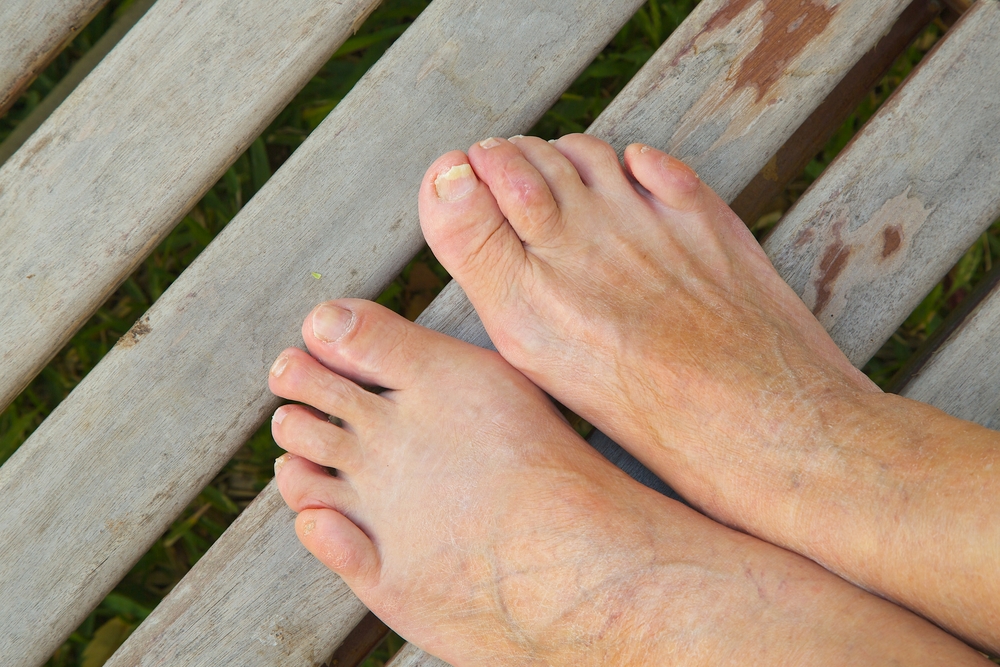 Hammertoes are a type of toe deformity that cause the ends of the affected toes to bend downward at the middle joint. At first, the affected toes may be flexible, but over time, the joints can become stiff, leaving the toes stuck in a claw-like position. The most common cause of hammertoes is wearing shoes that are too narrow and tight, which cause the toes to bend upward. Muscles and tendons within the affected toes become tighter and shorter, causing the toe to remain in a bent position long after you have taken off the shoes. Risk factors that increase your risk of developing hammertoes also include having longer toes, bunions, or rheumatoid arthritis. Hammertoes can cause pain and discomfort, make it difficult to wear shoes, and increase your chances of getting corns, calluses, and blisters on your toes. If you have hammertoes, it is suggested that you seek the care of a podiatrist.
Hammertoes are a type of toe deformity that cause the ends of the affected toes to bend downward at the middle joint. At first, the affected toes may be flexible, but over time, the joints can become stiff, leaving the toes stuck in a claw-like position. The most common cause of hammertoes is wearing shoes that are too narrow and tight, which cause the toes to bend upward. Muscles and tendons within the affected toes become tighter and shorter, causing the toe to remain in a bent position long after you have taken off the shoes. Risk factors that increase your risk of developing hammertoes also include having longer toes, bunions, or rheumatoid arthritis. Hammertoes can cause pain and discomfort, make it difficult to wear shoes, and increase your chances of getting corns, calluses, and blisters on your toes. If you have hammertoes, it is suggested that you seek the care of a podiatrist.
Hammertoe
Hammertoes can be a painful condition to live with. For more information, contact Dr. Mark Gagnon from Advanced Podiatry. Our doctor will answer any of your foot- and ankle-related questions.
Hammertoe is a foot deformity that affects the joints of the second, third, fourth, or fifth toes of your feet. It is a painful foot condition in which these toes curl and arch up, which can often lead to pain when wearing footwear.
Symptoms
- Pain in the affected toes
- Development of corns or calluses due to friction
- Inflammation
- Redness
- Contracture of the toes
Causes
Genetics – People who are genetically predisposed to hammertoe are often more susceptible
Arthritis – Because arthritis affects the joints in your toes, further deformities stemming from arthritis can occur
Trauma – Direct trauma to the toes could potentially lead to hammertoe
Ill-fitting shoes – Undue pressure on the front of the toes from ill-fitting shoes can potentially lead to the development of hammertoe
Treatment
Orthotics – Custom made inserts can be used to help relieve pressure placed on the toes and therefore relieve some of the pain associated with it
Medications – Oral medications such as anti-inflammatories or NSAIDs could be used to treat the pain and inflammation hammertoes causes. Injections of corticosteroids are also sometimes used
Surgery – In more severe cases where the hammertoes have become more rigid, foot surgery is a potential option
If you have any questions please contact one of our offices located in Crestwood, Orland Park, and Summit, IL . We offer the newest diagnostic and treatment technologies for all your foot and ankle needs.
